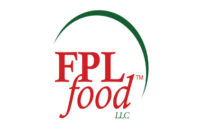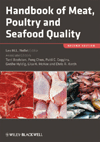Many companies in the food industry were forced to re-evaluate their current business models in the midst of the COVID-19 pandemic and, if necessary, adapt to the changes to everyday life. If a big portion of their business had been in the foodservice industry, then processors needed to find a way to fill the void left by the shutdown of restaurants.
For some companies, there was opportunity in the middle of all the uncertainty. New avenues opened up and new revenue streams were uncovered. Some of those revenues may have been temporary measures to get through the pandemic, but some of those opportunities have led to permanent changes. One such company that has changed and grown is Marvell Foods, a Boca Raton, Fla., food broker. For years, the company has been involved in the buying and reselling of food products.
“When there is a change in packaging or close-coded or past code, we are right there, and we have a lot of avenues to sell these products at a discounted price, such as ethnic grocers, food stands, grocery outlets,” explains Marilyn Raybin, president of the company. Marvell Foods also has a strong presence in supplying food banks, and it also participates in selling food to the state and federal prison programs.
Raybin is a 30-year veteran in the food industry. She has been active in sales for companies like Con Agra and Gold Kist – at one point she was known as the Chicken Queen of America, because of her sales skills and the fact that she was a successful woman in a male-dominated business. When those companies were acquired and the business changed, she morphed Marvell Foods into a close-out buying company. Her career has given her an extensive list of contacts across the meat industry, and they came in handy in 2020.
Marvell Foods didn’t experience business disruptions because of COVID-19. However, the company found a new opportunity with the rise of the Farmers to Families food box program, a USDA initiative that helped get food from farmers into the hands of the consumers who needed it. The company worked with food manufacturers as a supplier/broker, and also as a liaison/broker on behalf of BOA (Basic Ordering Agreements) holders and awardees who won bids to supply food boxes to food-insecure American families suffering during the peak of the pandemic.
A large part of Marvell’s work involved getting chicken leg quarters from chicken processors into companies that specialized in sous vide cooking.
“We had 12 different companies that mostly did sous vide cooking. We provided the chicken leg quarters, and they provided the products for us in either a 2, 3 or 4-pound package with full labeling and cooking instruction, as per USDA and Farmers to Families requirements,” Raybin says.
Jamie Solveson, director of government sales and Raybin’s daughter, joined the company prior to the COVID pandemic and ended up spearheading the Farmers to Families business.
 Jamie Solveson of Marvell Foods
Jamie Solveson of Marvell Foods“The program itself took a little bit of organization so people could find their lane and find who they could work with to provide the protein,” she says. “Based on Marilyn’s portfolio and her contact list, we were able to secure relationships with cookers and manufacturers for the chicken.”
Marvell Foods helped provide some of the organization that was needed to get a variety of foods, from fresh produce to packaged chicken leg quarters, all into one box and into the distribution channels. Many of those companies, from chicken processors to sous vide cookers, needed that business to stay in operation.
“We had a handful of smaller cookers who were ultimately didn’t have any bookings, because they were doing foodservice. We provided them the opportunity for business,” Solveson says. “We have a small cooker in Kentucky, and he said that this program, even though it was two loads a week, was his lifeline. Marvell Foods and the program were able to sustain his business over the course of 18 months. For people like him, it was a blessing for the timing to work out.”
The Farmers to Families program was sunsetted in spring of 2021, but its success has spurred Marvell Foods to look for other government contract opportunities. “We are working to get into child nutrition division. We’re working with some of our partners from the Farmers to Families programs; we gave them the specifications for something like a chicken strip or beef taco meat. We have all our partners lined up and ready for the bidding that’s going to come in, and we’ve very excited about getting into this arena,” Raybin says.
The company has some experience in government contracts, given its work with the prison systems. However getting certified as a woman-owned business and filling out all the required forms required a considerable effort.
“If you have one line wrong, you had to re-do the whole application,” Raybin notes. Solveson had to get a whole new computer system to work on the government platform. Cutting through the red tape has become her chief responsibility. The work, time-consuming though it may be, has given Marvell Foods and its processor partners an inroads into a new revenue stream with government contracts.
“I think the key word is perseverance. I think you really have to be committed into wanting to do this work and to not give up. It definitely takes a lot of commitment,” she says.









